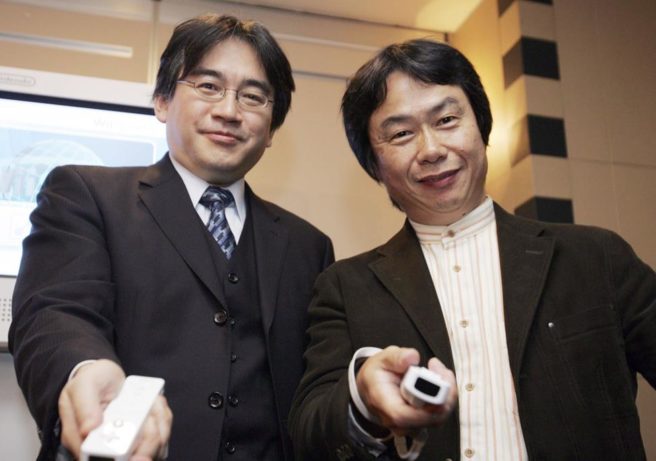Shigeru Miyamoto reflects on his relationship with Satoru Iwata, influence still felt at Nintendo
Hobonichi published a new book in Japan today about the late Satoru Iwata. Titled Iwata-san, it even includes an interview with Mario and Zelda creator Shigeru Miyamoto, which delves into his relationship with the now former Nintendo president.
IGN has now translated some of the excerpts from the book. Here’s Miyamoto discussing his relationship with Iwata:
“To me, he was a friend more than anything. It never felt like he was my boss or that I was working under him. He never got angry; we never fought about anything.”
“Normally, if someone younger than yourself with fewer years of experience becomes president, it might be difficult to get along with each other, but it was never like that. It had always been obvious that he was more suited for the position (than me), so it never became a problem. I think it allowed us to naturally become true friends.”
Miyamoto and Iwata regularly ate lunch together. During one of their first meals, when Iwata was the head of HAL Laboratory, the two ended up creating a tradition after they went to grab a bowl of ramen late one night:
“Nintendo doesn’t pay for social expenses, so we had to go Dutch on the bill. That became a tradition that lasted even after he became company president and I became an executive.”
For some closing thoughts, Miyamoto shared the following:
“Since he passed away, Nintendo has been doing just fine. He left many words and structures that live on in the work of our younger employees today. The only problem is that, if there is some good-for-nothing idea I come up with over the weekend, I have no one to share it with the next Monday. That I can no longer hear him say ‘Oh, about that thing…’ is a bit of a problem for me. It makes me sad.”
You can find more from the book on IGN here, which includes comments from EarthBound creator Shigesato Itoi.
